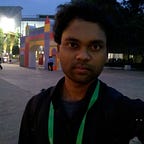When I thought of writing my next post on this meetup, I asked myself,”When will I start writing about anything other than the events I go to?” Though I did write few blogs which are not about any meetups or events, most of the blogs so far have been about the sessions/talks I attended. One of the reasons that compel me to write about such events is the amount and variety of information and knowledge one can get by attending a meetup/session that lasts for a couple of hours. These are insights, advice, tips and words spoken and shared from experiences which we don’t often find from courses or text books. OpenHack’s open community meetup was nothing short of such an event that gave every single attendee many useful insights.
OpenHack Machine Learning is a 3-day event organised by Microsoft in which shortlisted people form groups and work on solving challenges using ML. Though it would have been really good to be part of the 3-day event, it needed an invite which I didn’t have. As part of the agenda for Day 1, they had an open community discussion in the evening which was open for everyone. It was Nigel Parker, Chief Engineer at Microsoft who started the session. He showed us few examples of image labelling which the model got wrong explaining how having the right data is important to obtain better results. Computer Vision is his area of interest and he shared some informative slides on Deep Learning and Computer Vision.
In a typical ML project, feature extraction is a key step. This is handled by itself in Deep Learning and so it reduces so much work. Classification, object detection, image segmentation and image similarity are some of the tasks that widely use Deep Learning models. Alexnet, VGG, GoogleNet, ResNet are some of the model architectures that are used. Currently, ResNet that was developed by Microsoft Research is giving very good results. It also proved that the model can do well even when it is 150 layers in depth. When it comes to the human eye, processing/understanding an image gets better as the resolution increases. But for Deep Learning models, it’s necessary to have input in right resolution keeping in mind the computational demands. He talked about ONNX(Open Neural Network Exchange) which is an open source format for AI models. He also recommended reading the book How to Create a Mind by Ray Kurzveil.
Chris Auld, a Software Engineering Manager at Microsoft who came next onto the stage, had a slide in his presentation that says, “Microsoft loves Linux”. And he didn’t hesitate to recommend Linux for doing Machine Learning development. He talked about how he and his team works on making the Machine Learning/Deep Learning models better. The kind of model architectures that are being used along with huge amount of data that is available, makes it mandatory to have the required computation power that can afford the demands of such models and data. Distributed training becomes necessary as a part of handling all that.
After having two speakers whose talks were very informative and helpful, there was a panel discussion. Besides the two speakers, three others from Microsoft joined the panel — Neil Hutson, Micheleen Harris and Hannah Krager. There were some interesting questions asked and discussed like how much of Microsoft’s Machine Learning stack is open source, how much of ML applications that are being proposed is hype and what is practically achievable, how having large dataset isn’t enough as long as it doesn’t have the right data(heard about the Russian Tank story? Click here). AI is already being used in many fields. It’s being used for early detection of some diseases so that they can be diagnosed and cured. With many promising possibilities ahead, AI is already so much part of our lives.
It was a very engaging session throughout and I got to know a lot of things. Thanks to Jeeva who organised the meetup and gave us a chance to meet the engineering leaders. Thanks to Nigel who was kind enough to spend almost another hour and half post the panel discussion, answering our questions, giving suggestions on how to get started with the implementation of some ML ideas and sharing his thoughts and experiences.
Thanks for reading!!
